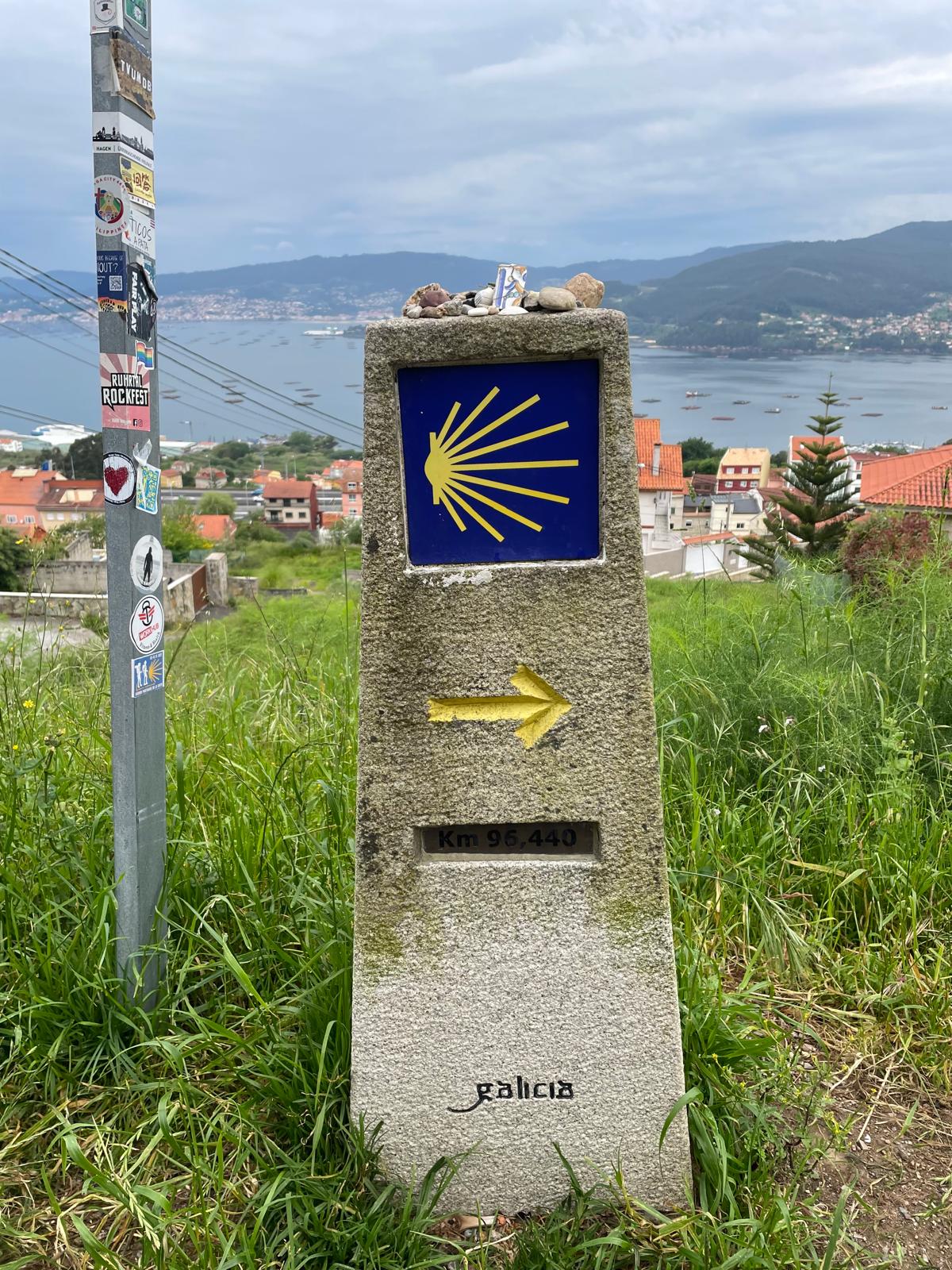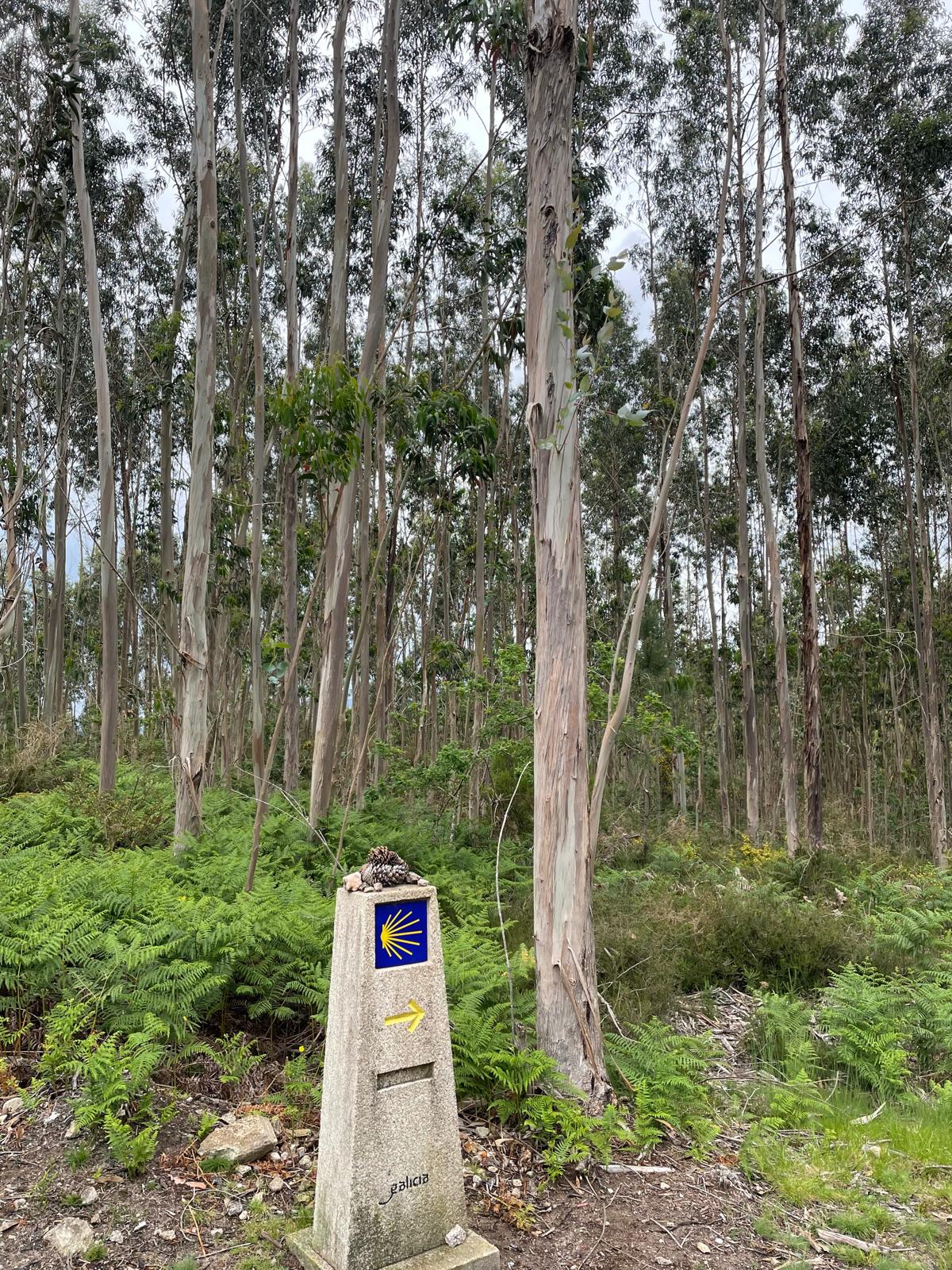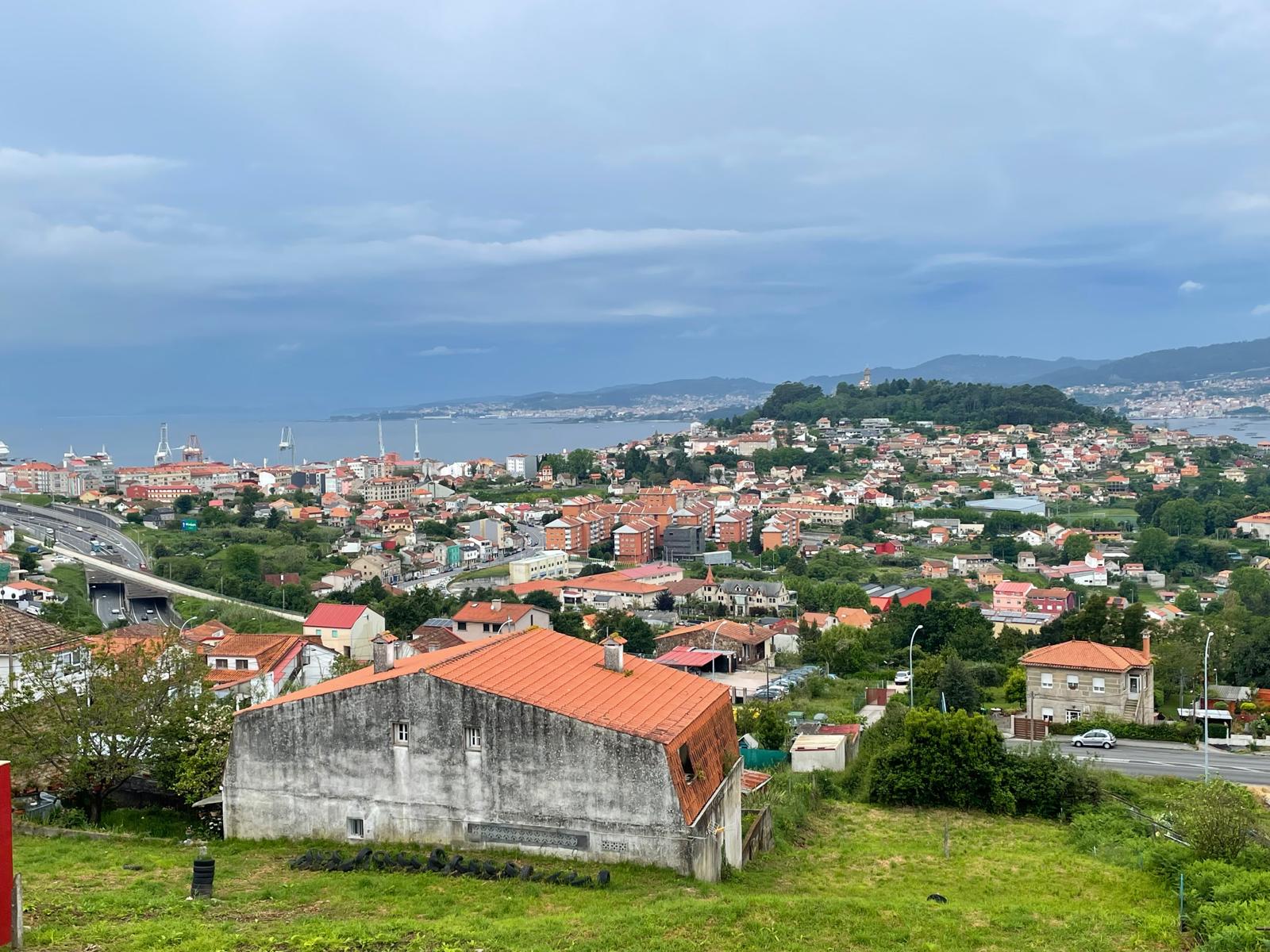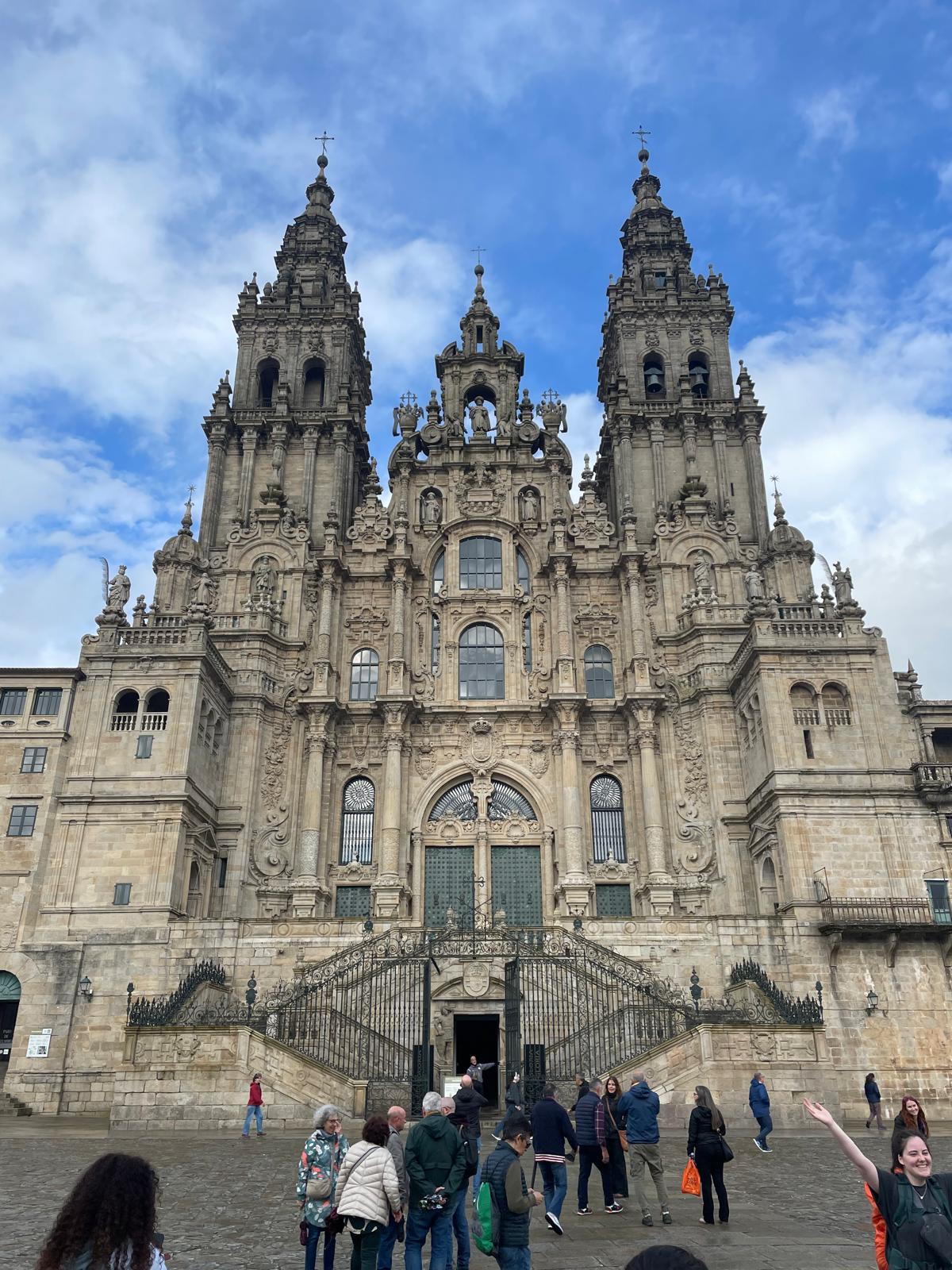By Julianna Klassen, Student Writer
OTTERBURNE, MB – “Painful in a way I cannot describe…I cannot fathom walking another 25 kilometers tomorrow.” This particular journal entry was written after my first day on the Camino de Santiago. Are you enticed yet?
Along with a wonderful group of Providence classmates and coordinators, I had the opportunity to travel to Spain this May. The Camino de Santiago – “Way of Saint James” – is a significant spiritual pilgrimage. The lives of people from around the world intersect on this path as they join the tradition, walking towards the cathedral of Santiago de Compostela. Our group began in Vigo, Spain, to walk the last 100 kilometers of this trail in 4 days. Pilgrims will often spend weeks and even months on the path. One struggles to forget this sort of experience. We fumbled our way through Spanish menus, discovered new reaches of soreness in our bodies, and felt the true iniquity of a foot blister. Simultaneously, we saw the Spanish countryside, sat under fragrant eucalyptus trees, and spent balmy evenings dining with pilgrims from Estonia, Russia, and Portugal. The beauty of the slow-passing landscape, paired with the richness of devoting the walk to God, made for a remarkable trip.


I am faced with the impossibility of conveying the Camino to one who has not experienced it for themselves. The pilgrim is removed from conventional societal values of productivity and efficiency. Withdrawn from their everyday context, those who walk the Camino are enabled to reframe their identity as they dwell with God. A process of reorientation takes place; it is no exaggeration to say that the Camino has changed the way I see the world, and my place therein. The shared experience of pilgrims is irreplicable. While on the trail, we are as though in another world, one in which those we greet along the way hold a common goal. Distractions and social ideals do not exist in this place; the pilgrim may examine their heart with a rare clarity. I have seen for myself that the Camino’s impact does not stop when one boards the plane back home.
Above all, the Camino de Santiago has shown me how goodness and growth exist within pain. The trip which took us nearly 40 hours of walking could have been completed in little over 1 hour by car. Travelling this way, we would have been spared the sore hips, the swollen feet, the dread of another 25 kilometers ahead. We also would have been spared the time for deep prayer, connection, and fulfillment. To take the easiest way forward would have stripped this experience of its transformative capacity. Pilgrims on the Camino welcome pain, and indeed choose it. To reach the journey’s end would not have been so gratifying in the absence of prior discomfort. However, I cannot help but believe that, apart from the satisfaction of reaching the cathedral, the goodness that exists in pain would still be apparent. In our aching, humans draw nearer to each other. We call out to God; we have no choice but to place our full trust in God, and to lean on God’s providence. I am able to see, in hindsight, the ways in which God’s presence was magnified through my pain.

The Camino has shown me that I not only can do hard things, but should do hard things. As I enter a greater role of student leadership this year, I hope to remember that God does not always invite us to take the easy way forward. Sometimes we are called to tasks which are mentally, emotionally, and indeed physically taxing. To avoid pain in every circumstance – while a tempting approach to life – is not the posture we see reflected in the spiritual pilgrimage. Our relationships, human and Divine, become fortified in hard times. Shall I point to the cross as a first-rate example of shared suffering?
Arriving at the cathedral in Santiago, to quote my journal once again, “took my breath cleanly away.” Pilgrimages represent one’s walk of faith. Following this metaphor, the Santiago cathedral gives a taste of arriving in Heaven. As I fell to the cobblestone and realized that the walk was done, I clearly remember the joy, relief, and sense of humility at the foot of it all. This moment was one of the sweetest of my life, to sit at the foot of the majestic cathedral, surrounded by my friends who’d walked the narrow road with me. Having completed a hard endeavor, and because of it, having grown.



